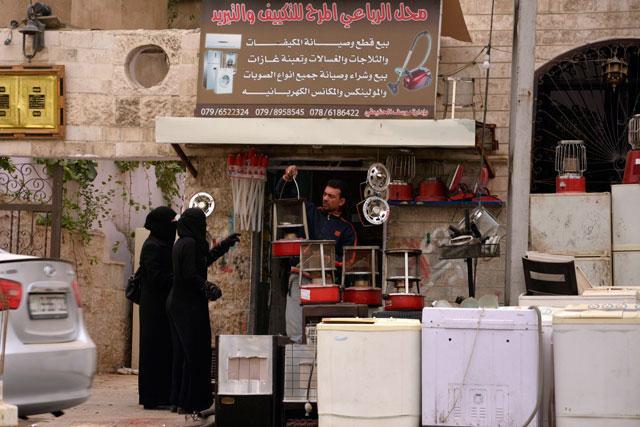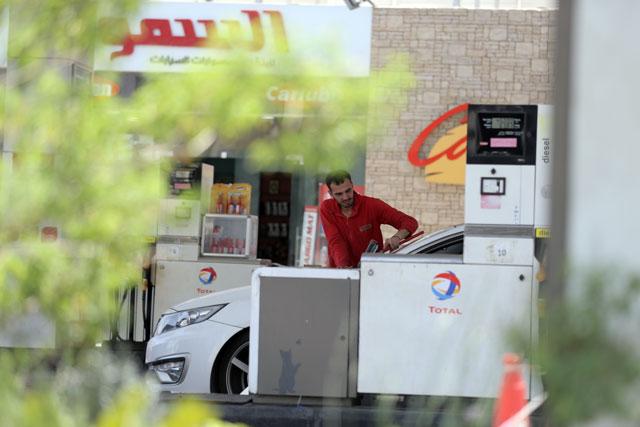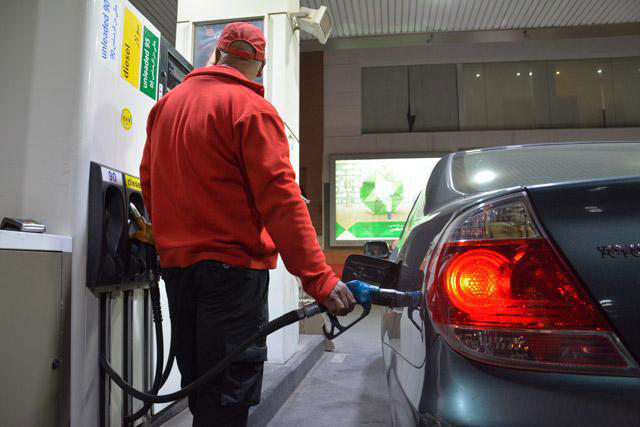You are here
Many households switch to cheaper heating systems amid virus crisis — stakeholders
By Maram Kayed - Nov 17,2020 - Last updated at Nov 17,2020

Women buy a kerosene heater from a shop in downtown Amman in this undated photo (JT file photo)
AMMAN — With winter approaching, stakeholders in the energy sector say they have started to see a shift in Jordanian households’ heating patterns to save on their energy bills amid the coronavirus crisis.
“As we have already seen, the income of families has been greatly affected by the pandemic, which will in turn affect their spending, as they might strive for cheaper means of heating and in smaller amounts,” said Hamadah Mansour, a gas station attendee.
Mansour, who is in charge of the diesel stand at a gas station located in University Street, told The Jordan Times that people have been “avoiding purchasing large amounts of diesel for their boiler heating systems or kerosene for heaters and instead looking for electricity-powered alternatives”.
Monther Sabah, owner of a large electronics store, said that the past few years, and 2020 in particular, have seen a rise in popularity for air conditioners and electricity-powered heaters.
Sabah told The Jordan Times over the phone that electricity-powered heaters “are obviously not as effective as fuel-powered heaters, especially not comparable to a diesel-powered central heating system, but they are cheaper”.
This month, the government reduced the price of 90-octane gasoline and 95-octane variant by 5 fils, while the prices of other fuel derivatives as well as electricity remained unchanged.
The price of one litre of unleaded 90-octane gasoline went down from JD0.670 in October to JD0.665 in November. The price per litre of unleaded 95-octane gasoline was decreased to JD0.880 in November compared with JD0.885 in October.
The prices of diesel and kerosene remain unchanged at JD0.460 per litre and the price of gas cylinders, as usual, remains at JD7.
“I can already see that citizens are choosing the most appropriate heating system for their financial situation, as many of them have been buying electric heaters,” said Sabah, who added that “unlike past years, not many people have come to fix their kerosene-powered heaters, which means they are not planning to use them.”
President of Gas Stations Owners Association Nahar Seidat said in a statement that the demand for diesel and kerosene is “still low among stations until now, despite their sufficient availability,” which he said “could be due to the fact that the temperatures currently do not require the use of heating devices.”
Recent years have “witnessed a decrease in the demand for diesel for heating systems due to the increase in its price, therefore, there was a shift to electric and kerosene heating systems,” Seidat said, adding that the demand usually reaches its peak in December and January every year.
Shadi Sayyed, an owner of a store that sells heating and cooling systems, said this “might be a harsh winter for many Jordanians given the impact of the coronavirus pandemic on the country and almost all segments of society”.
Sayyed said that he and his fellow storeowners were planning to import diesel heating systems, but they have decided to see if there will be any demand in the following months, as there isn’t any currently.
“Diesel-based heating systems need between JD500 and JD1,500 for refilling to last for one to three months in winter, depending on the house’s size, the household’s usage, the type of heater, etc. Anyhow, JD500 is a big amount for most households right now to be spent on heating,” Sayyed noted.
Related Articles
AMMAN — Experts are calling on the government to reduce prices of kerosene during the months of December and January to secure heating
AMMAN — Fuel prices in the domestic market are expected to go up by 4 per cent to 5 per cent in June, an informed source told The Jordan Tim
AMMAN — The government fuel pricing committee on Tuesday decided to maintain the price of kerosene at JD0.620 per litre for the duration of



















